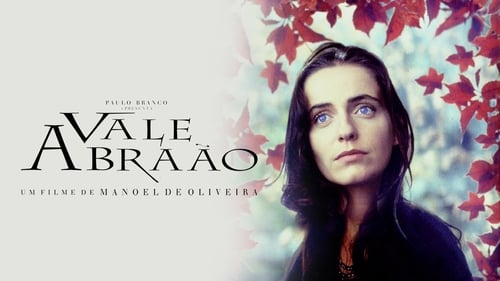
Music
Departing from extracts written by Fernando Pessoa, the characters walk through the city of Lisbon, having the streets and houses where the Poet lived as the background.

Com Que Voz is a documentary that recounts the life of Alain Oulman, an important cultural figure during the nineteen-sixties and seventies, who left an indelible mark on Portuguese and French society. The film, shot in Lisbon, Paris and Tel Aviv, features celebrated authors, politicians and musicians, such as: Patricia Highsmith, Amos Oz, Amalia Rodrigues and Mario Soares.

Piano Player
The complex relationship between master and servant is explored in director João Botelho's adaptation of Denis Diderot's popular novel Jacques le Fataliste et Son Maître. As Tiago (Rogério Samora) drives his master (André Gomes) through the Portuguese countryside to an unspecified destination, the traveling pair embark on a series of highly philosophical discussions. Flowing with tales of his life in the military and previous sexual escapades, Tiago trades a series of tales with his rapt passenger, including the story of a vengeful spurned lover who plots revenge on the nobleman who rejected her by transforming a prostitute into a society lady and convincing him to marry the tainted bride.

Church organist
'Mal' reúne varias historias: la de Pedro y Cathy, separados por todo pero unidos por un inmenso amor; la de la constante angustia del joven delincuente Daniel y su búsqueda de un lugar bajo las estrellas; la historia de un abuelo que llega a Lisboa a buscar a su nieta; y la de los Cruz, que viven juntos por necesidad. Según Alberto Seixas Santos, "'es un mosaico narrativo en el que temas cotidianos de vidas separadas se encuentran".

Nelson
Ema es una mujer de una belleza desafiante, y no sólo para Carlos, su marido, con quien se casó sin amor. Su gusto por el lujo y lo refinado, las ilusiones que tiene por la vida, el deseo que inspira a los hombres... todo ello le hace valedora del sobrenombre "La pequeña Bavary".

Pianist
Adelaide Coelho da Cunha, daughter of the founder of the newspaper "Diário de Notícias", married to Alfredo da Cunha, then director of this newspaper, and mother of José, who is 20. This educated, cultured woman, falls in love with the chauffeur, who is youger than her and from a different social background. This passion leads to confronting the established order of things and the standards of social behaviour of a wife and mother. She may at the same time be heroine and victim of her own courage in deciding to make a final break from the whole family status and run off with the chauffeur. When his wife runs off with the chauffeur, Alfredo da Cunha with the aid of some of the eminent doctors of the day, has her declared irresponsible and incapable of administering her assets, and on this pretext he has her inprisoned in a mental hospital.

Berardo
Some time ago Gerardo knew another man of the same age called Berardo. When he said the name, Berardo expressed his oppinion violently, saying that the «G» was owed him and that Gerardo, since he owned it had somehow stolen something from him. Berardo then tries to get something back which soon goes beyond a baptismal name. Gerardo whitnesses this strange spectacle of himself as a place where, after Berardo, other people try to get something back, something that escapes them about themselves. Three women - Adália, Miranda and Virgínia - are whitnesses to this game

Pianisa
The film was to be a documentary, but evolved during production to a fictional film. It nevertheless adheres strictly to the poems and letters exchanged by two of the most outstanding names of the Modernist Movement, Fernando Pessoa (in Lisbon) and Mário de Sá-Carneiro (in Paris). Their endless conversation was dramatically and suddenly terminated.

The film of a performance of a selection of cabaret comedy sketches by Karl Valentin, with Jorge Silva Melo as stage director. The show was a complete success and has become almost legendary. Solveig Nordlund shot it, adding some more sketches that weren’t included on the show.







